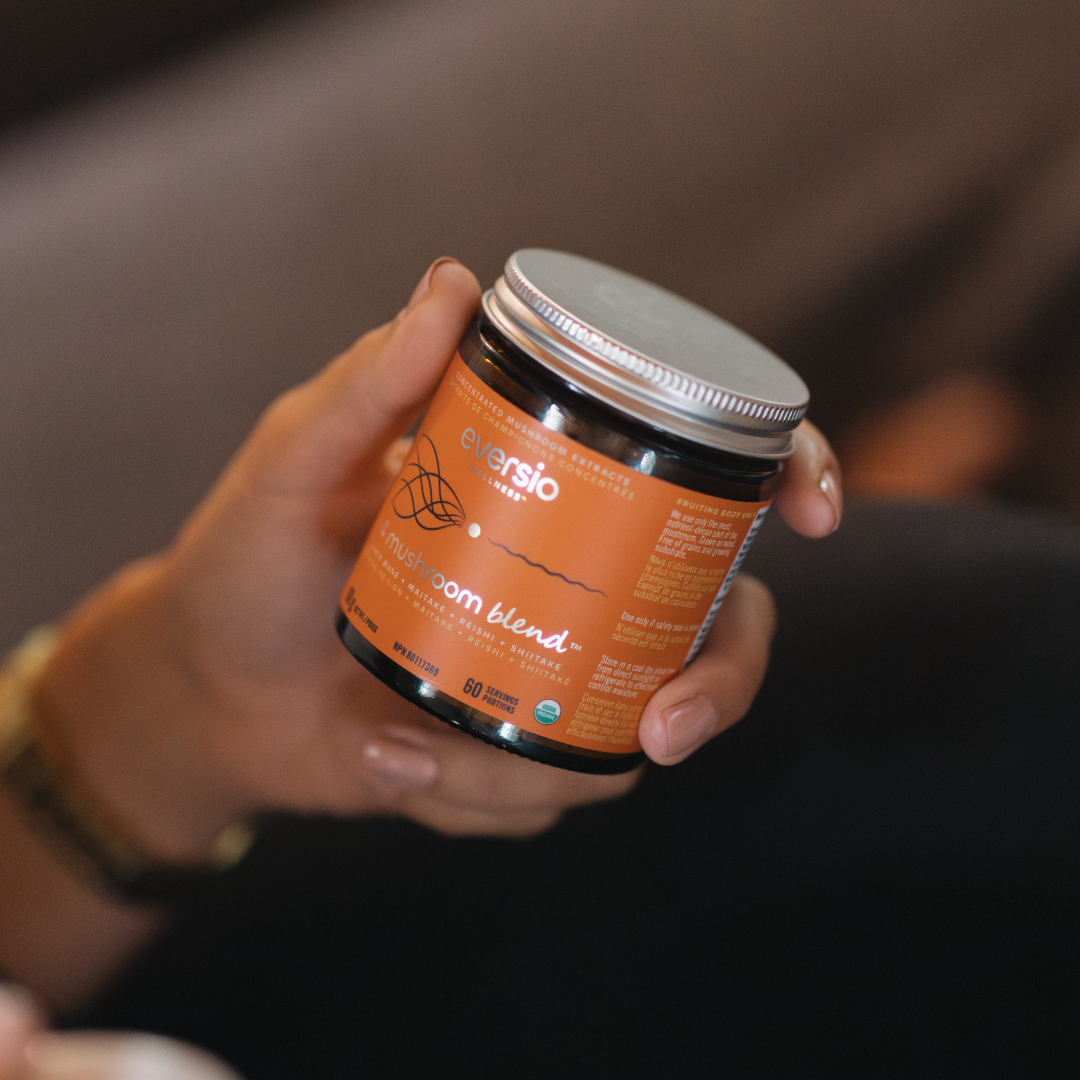April 6, 2024 | Dr. Silvana Jakupovic, ND
Functional mushrooms have long been celebrated for their impressive health benefits, from immune system enhancement and inflammation reduction to chronic disease prevention. Yet, their potential influence on fertility and reproductive health might be an unexpected revelation to many. Emerging research suggests that specific mushroom varieties could affect reproductive health by harmonizing hormone levels, elevating sperm quality, and boosting reproductive functions.
When infertility occurs, many individuals rely on conventional medical interventions and techniques. Nonetheless, there's an increasing fascination with comprehensive reproductive health strategies that encompass physical, emotional, and spiritual well-being. Such strategies include dietary enhancements, like the integration of functional mushrooms. Beyond their culinary appeal and nutritional value, functional mushroom supplements are gaining recognition for their potential holistic benefits on fertility.
• Can Cordyceps Improve Fertility?
• How to Use Cordyceps to Improve Fertility
What is the Cordyceps Mushroom?
Cordyceps mushrooms are no ordinary fungi. Their lifecycle begins in a rather peculiar fashion, involving the infection of insect larvae. These fungi grow within their hosts before eventually sprouting from the host's body, a process that has captivated mycologists and traditional medicine practitioners alike. Historically, Cordyceps were highly valued in traditional Chinese and Tibetan medicine and revered for their ability to increase energy and vitality. These mushrooms were considered rare and precious, found at high altitudes in the Himalayas, and were often reserved for the noble and elite.
How Does Cordyceps Improve Fertility?
The proposed mechanisms behind the health benefits of Cordyceps include enhancing mitochondrial activity (thus increasing energy production), modulating the immune system, and possibly exerting antioxidant effects. These actions, in turn, may contribute to improved bodily functions, including those related to reproductive health. The exact processes through which Cordyceps may affect fertility have yet to be fully understood. Still, current theories suggest improvements in hormonal balance, increased libido, and enhanced reproductive organ function as potential pathways.
As men age, they often experience a decline in both the quantity and quality of sperm, a change that might not be immediately noticeable but can significantly impact a couple's ability to conceive. In one clinical trial, 22 men received Cordyceps mushroom extracts over eight weeks, with the results being quite significant [1]. On average, there was a 33% increase in sperm count, a 29% reduction in sperm abnormalities, and a notable 79% rise in sperm survival rates [1].
Additionally, another study explored Cordyceps' impact on both men and women, revealing significant boosts in sexual desire, including a 66% improvement reported [2]. A further study concentrating on women alone found that Cordyceps supplementation led to an impressive 86% enhancement in libido and sexual interest [3].
Research has also investigated how Cordyceps affects female reproductive health, particularly focusing on its influence on human granulosa-lutein cells [4]. These cells play a crucial role in the reproductive system, and it was discovered that their exposure to Cordyceps led to an increased production of the hormone 17-beta-estradiol (E2). This hormone is essential for egg maturation and preparing the uterus for implantation, with its production being enhanced in both a dose- and time-dependent manner following Cordyceps treatment.
The study further revealed that Cordyceps stimulates the activity of enzymes critical for E2 synthesis, such as the P450 side chain cleavage enzyme, 3-beta-hydroxysteroid dehydrogenase, and aromatase [4]. Moreover, levels of steroidogenic acute regulatory protein (StAR) and aromatase proteins, both vital for E2 production, were also elevated due to Cordyceps treatment [4].
The findings suggest that the increase in E2 production triggered by Cordyceps can be attributed to the enhanced expression of StAR and aromatase. This evidence points to Cordyceps' potential as an adjunct treatment to improve outcomes in in-vitro fertilization by promoting a more favourable hormonal environment for egg development and implantation [4].
How to Use Cordyceps for Fertility
Cordyceps can be consumed in various forms, each offering a unique way to integrate this traditional remedy into modern wellness routines. The most common forms include:
Mushroom Powder: Easily mixed into smoothies, teas, or foods for a convenient daily supplement.
Mushroom Capsules: For those preferring a more measured and convenient form, capsules offer a straightforward way to consume Cordyceps.
Choosing the right form depends on personal preferences, lifestyle, and specific health goals related to fertility.
Determining the optimal dosage of Cordyceps for fertility enhancement can be challenging due to the variability in product strength and individual health needs. Most studies and traditional practices suggest starting with lower doses and gradually increasing as needed, though it is essential to follow the recommendations provided by healthcare professionals or product guidelines. Consulting with a healthcare provider can help tailor the dosage to suit individual requirements and conditions.
Combining Cordyceps with Other Fertility Treatments
Cordyceps can be part of a holistic approach to fertility, used in conjunction with other treatments and lifestyle changes. For example, combining Cordyceps with a balanced diet, regular exercise, and stress-reduction techniques may amplify its benefits. However, it's crucial to discuss any new supplements or lifestyle changes with a healthcare provider, especially when undergoing fertility treatments, to ensure safety and effectiveness.
While Cordyceps is generally considered safe for most people, it can cause side effects in some cases, such as digestive upset or allergic reactions. Individuals with certain health conditions or those taking specific medications should exercise caution and discuss with their healthcare practitioners.
Cordyceps Mushroom for Fertility
Using Cordyceps mushrooms as a natural aid for fertility encapsulates the convergence of ancient wisdom and modern science. While traditional practices and anecdotal evidence have long supported its use, emerging scientific research offers a glimpse into the potential mechanisms and benefits of Cordyceps for enhancing fertility.
Individuals considering Cordyceps as part of their fertility journey should do so with mindfulness, informed by the historical roots and the current scientific understanding of this functional mushroom. Consulting with healthcare professionals, considering the quality and form of Cordyceps supplements, and integrating them into a holistic approach to fertility can offer a balanced and thoughtful way to harness Cordyceps's potential.
Related Articles






















Leave a comment
All comments are moderated before being published.
This site is protected by hCaptcha and the hCaptcha Privacy Policy and Terms of Service apply.